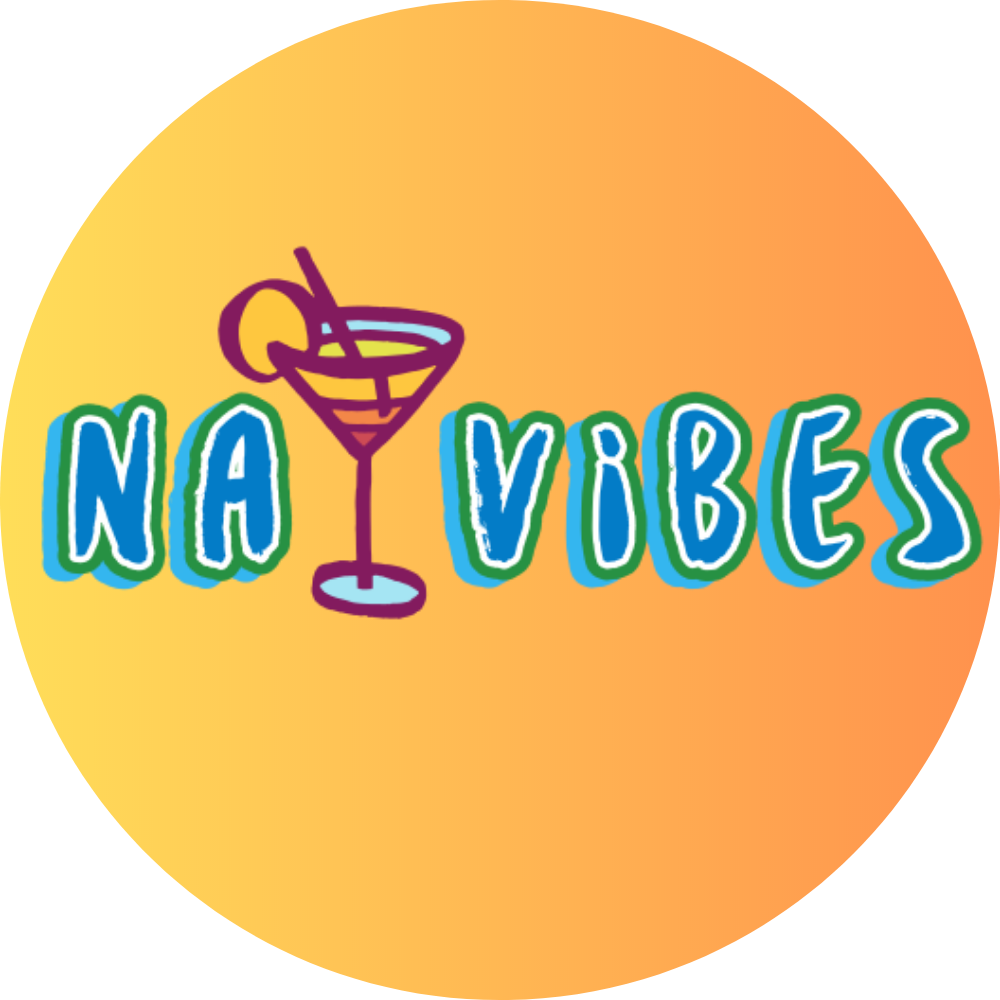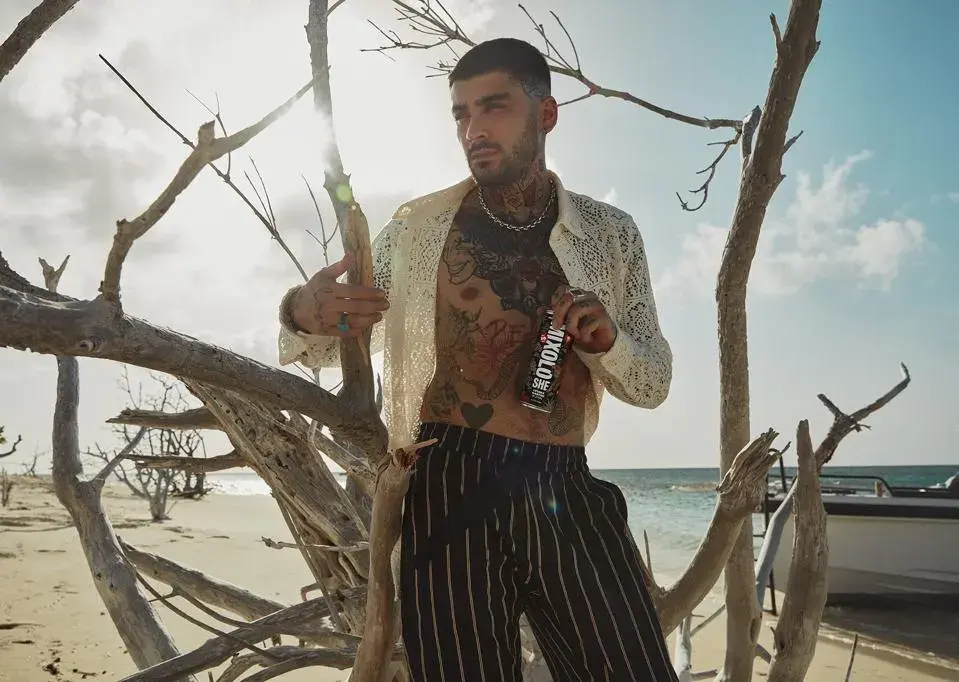The Women Driving Innovation in the Non-Alcoholic Sector
- Joel Stoner

- Jul 2, 2022
- 11 min read
3/23/2022 Trevor Wolfe, from The Zero Proof

From the moment that Ruby Warrington coined the phrase “Sober Curious,” women have been at the forefront of the non-alcoholic beverage movement that has exploded in the last several years. Women like Julia Bainbridge, prolific writer on non-alcoholic beverages and author of the extraordinary zero-proof cocktail book Good Drinks, Camille Vidal mixologist and founder of mindful drinking platform Maison Wellness, and Quit Like a Woman author Holly Whitaker have pioneered a new vision of enjoyable, even indulgent sobriety. But it is not just women writers and bartenders who are driving this innovative vision; women founders are at the forefront of the craft non-alcoholic spirits and drinks movement.
The Zero Proof talked to five women founders about their journey to creating non-alcoholic beverages, the women in the industry they admire, and the innovations they’ve had to make in pursuit of top tier quality and flavor.
Necessity is the mother of invention - For Bitter For Worse

A few years ago, Shelley Elkovich, co-founder of For Bitter For Worse, found herself suddenly forced to stop drinking due to the sudden onset of mal d’embarquement, a rare vestibular condition where the brain thinks the body is constantly swaying, bobbing, or rocking, as if on a boat, even when completely still and on dry land. Drinking alcohol doesn’t cause mal d’embarquement, but Elkovich found that drinking made her symptoms worse. A self-professed amaro lover, she was obviously concerned about her health, but also about the ecological impact of her drinks. Disappointed with the non-alcoholic options available at the time, she says, “Nothing met my standards for ingredients and was pleasing to my palate.” So she set about creating intensely flavored, non-alcoholic options “using the best possible ingredients for you and the land.”
To craft the complex and flavorful liquids, For Bitter For Worse uses a process Elkovich calls “reverse bootlegging.” After infusing water and plain alcohol with a blend of botanical ingredients, they use a still to extract the alcohol, leaving behind a concentrated and flavorful zero proof base that gives For Bitter For Worse expressions their distinctive, grown up flavor. The base is then blended with local ingredients to produce each of the three different expressions.
“We decided flavor, celebration, and occasion were the main focal points for us,” which is why the initial plan was to start by selling For Better For Worse to restaurants in the Portland area, rather than direct to consumers. But as COVID-19 shut down dining all over the world, the company pivoted to selling online in early 2020. Though this move was born of necessity, Elkovich says the experience has been unexpectedly fulfilling, as she frequently receives touching and grateful messages, almost entirely from women, who found themselves drinking too much in response to the loneliness of lockdowns, or the stress of juggling working from home with kids who were remotely learning. “I blame it on Enjoli,” she says only half jokingly, referencing the 1970s perfume commercial that said, “I can bring home the bacon, fry it in the pan, and never let you forget that you’re a man,”and which Elkovich was reminded of by Kristi Coulter’s collection of essays on sobriety, Nothing Good Can Come from This.
While men still drink more alcohol than women, women are more likely to drink as a response to negative emotions, like anger, sadness, and, of course, being overwhelmed with the stress of modern life, a trend that was happening before the pandemic exacerbated the stressful conditions for women who try to “have it all.” A recent survey by today.com, the online platform for the Today Show, revealed that “almost 40 percent of respondents said drinking helps them cope with the stress of being a parent and more than one-third said they have mom friends who they think have a problem with alcohol.” For Elkovich’s customer’s, switching to For Bitter For Worse, a non-alcoholic beverage with a sophisticated, adult flavor profile, helped pull them out of destructive drinking habits, while giving them a treat to look forward to at the end of the day.
La Dolce Vita with Ghia

Mélanie Masarin, founder of Ghia, agrees that “alcohol in America is often marketed as a coping mechanism,” but also that “you can feel the big social pressure with drinking. As someone who loves to host, I was always questioned for not drinking and I really wanted to change the way we thought about eating and drinking. This inspired me to find an alternative to alcohol for those who decided it wasn’t for them.”
Growing up, Masarin spent summers in Italy with her grandparents, and the influence shows in the flavor profile of Ghia, a bracing, bitter apéritif, available straight or in cans of ready to drink spritz. One of Ghia’s major strengths is the company’s charming brand identity, a kind of laid back version of la dolce vita that is at once comfortable and glamorous, an aesthetic that used to be dominated by ideas of limoncello and balloon shaped glasses of Aperol spritz. “The best way to change these messages is to really normalize not drinking and having more options. My hope is that it becomes just as ‘normal’ to opt for a non-alc option at a bar as an alcoholic beverage. Not drinking was considered taboo for so long and that messaging is finally starting to change, giving people the freedom to not drink (alcohol) in a social setting without feeling othered.”
Every one of the other women I interviewed cited Masarin as one of the women who inspired them. So who inspires her?
“Julia Bainbridge! She paved the way for people talking about sobriety as well as loneliness and drinking, and how closely intertwined these two are. Julia also seamlessly applies a critical culinary angle to the non-alcoholic drink that did not exist before.
I also admire Holly Whitaker, author of Quit Like A Woman, which is a very loud and direct book about the realities of trying not to drink as a woman. I read this book after several years of not drinking and still found it incredibly eye-opening and informative because it points out all of the different stigmas and ways we’ve been conditioned to drink and think in terms of alcohol.
And I couldn’t leave out Ruby Warrgington! She was the first to coin the term ‘sober curious.’ I think we really have her to thank for this label that we can easily use as a shield and explore broadly sobriety without the commitments of sobriety.”
“People drink for a feeling as well as the flavor” - Three Spirit
“I’m not anti-drinking,” insists Tatiana Mercer, one of the founders of Three Spirit, “I think that really we are pro socializing. I don’t think that there’s anything wrong with going to the pub and having a drink, you just don’t have to drink [alcohol].

As someone who has spent a great deal of time visiting and reviewing bars all over the world for the website and community she founded, BarChick, and does occasionally drink alcohol, Mercer may seem like an unusual person to found a non-alcoholic beverage company. She still drinks alcohol and spends a lot of time visiting and reviewing the best bars in the world for the website and community she founded, BarChick. But that experience showed her there was a need for a better alternative for who who weren’t drinking for whatever reason, and she genuinely wanted to ensure that they could have as enjoyable an experience as everyone else. When she and her partners were developing Three Spirit, she told them, “If some of the best bartenders in the world won’t stand up in front of their peers at big cocktail events and shout about this, then I don’t want it to come out.”
Three Spirit’s elixirs are designed to provide some of the physiological effects that people might be seeking from liquor or cocktails, but without the alcohol. “People drink for a feeling as well as the flavor, so you have a nightcap at the end of the night to help you sleep or digest or unwind, or you might have like a margarita to pick you up and get you in the mood to go out.” Three Spirits three expressions are named for and designed to provoke those feelings: the spicy and caffeinated Livener is a perfect pre-game perk-up; Social Elixir contains ingredients that may increase mental clarity and energy while soothing nervousness and anxiety to allow you to connect with other people (or maybe feel confident enough to lose yourself on the dance floor); and Nightcap has botanicals clinically proven to help you get to sleep and stay there.
Bonbuz brings the party vibes

For Bonbuz founder Fay Behbehani, there was only looking for one feeling to replicate. “I was that chandelier swinging wild-child that was the life of the party, but would also live in such shame and regret the next day from the things that I had said, done, not done— I didn’t know!” She felt that alcohol was holding her back from achieving the things she wanted to do, but when she stopped drinking alcohol she didn’t stop going out. If anything, “I think when I stopped drinking, I became even wilder!”
While working at a neurological technology company, Behbehani started experimenting with nootropics and adaptogens. She formulated Bonbuz with her favorites for increasing energy, alertness, and connection. It contains some caffeine from green tea, “that’s just the immediate boost, getting people to become awake very quickly, to get off the sofa, maybe put some pants on,” as well as 5-HTP, an assortment of B vitamins, and rhodiola. “We’re just going ham on getting people into the mood which is so hard to do sometimes when you’re not drinking alcohol. So I think that was the premise for the foundational, functional ingredients that are in both” the original, bitter citrus OG and the spicy blood orange Slow Burn.
“We just want to be an option that allows you to be who you are, but really fun and free. I think that we all have work to do around destigmatizing not drinking. This was our way of saying you can be fun as fuck and not have to have an alcoholic cocktail in your hand. This is an option for people who want to get crazy, who want to get down, but in a different way.”
Behbehani finds the number of women founders who are succeeding in the non-alc business unique to the industry, and particularly heartening. “I’ve never worked in an industry where a lot of the dominant players are female founded. It’s just never happened before for me. I’ve worked in the legal industry, advertising, the beverage industry. Brands that are in direct competition are in support of each other! Because it’s driven by woman and by an intention to be self-aware and to do things that make you feel like a better human. So part of that goes to lifting each other up; a rising tide lifts all boats. It’s very cliche, but it’s true! We all have a lot of work to do to keep this going, and one person can’t do it alone. So I am in support of the other brands in this landscape, and I am glad that they are moving this in the direction that I think we all want this to go.”
She attributes the large number of women in the industry to “a level of self-awareness that women have, that we’re really in touch with the way things make us feel and our emotional intelligence. When something doesn’t feel right, or makes us feel less than optimal, we try and understand what it is, why it does that, what part does it have to play in our lives. I think that a lot of the women producers in this space have been really intentional about their behaviors and have been looking at how we want to lead our lives, and for us, alcohol was probably something that held us back. It was holding meback, and I felt like I could do it better. But I do believe that there is an element of self-awareness that women are attuned to that allows for reflection and contemplation. From that there’s been this emerging understanding around the part alcohol plays in our lives, and women have really been driving the category because of those reasons.”
The key to the great flavor of Spiritless? Pressure

Lauren Chitwood of Spiritless, makers of Kentucky 74 (and arguably the best non-alcoholic bourbon alternative available), agrees with Behbehani. “I think we’re always more open and flexible in figuring out how to up-side our lives. Women are always the early adopters. They’re always the ones who are bringing something home, helping them be a little bit healthier.” Having worked alongside big alcoholic beverage companies in her career, she says, “It doesn’t surprise me at all that some of the old guard of men in the beverage alcohol industry weren’t looking at this and thinking, ‘How can we make this better? Or healthier for you?’ I think there is something kind of inherently female about that in a really wonderful powerful way.”
She also recognizes that there is a tremendous amount of support for women founders these days, something all of the women we interviewed emphasized. “There are a lot of opportunities out there for us and I think that this movement has caught everyone just at the right place at the right time. There’s lots of people looking to support us.”
Chitwood and the other two women founders of Spiritless, Abbey Ferguson and Lexie Lancaster Larsen, met and worked together in Kentucky, where they were immersed in bourbon culture. “Our previous business was an experiential agency that mostly worked with big alcohol companies, and it was through that that we saw this opportunity,” as the rise of non-alc was something “the big conglomerates were kind of scratching their heads and trying to figure out how to thoughtfully address.” But having their finger on the pulse of beverage trends was only half of the reason they saw an opportunity. “Frankly just the day to day grind of being in that world, being out and hosting functions, having a drink in your hand, but needing to get home and to the rest of our lives.. it was really a two sided experience. We were truly swimming in these waters of this desperate need for change and innovation.”
Kentucky is very serious about its bourbon, however, and just throwing together some natural and artificial flavors in a glycerin and water base was not going to cut it in the Bluegrass. “You know, in a brick house, a barrel sits over 4 years in the crazy Kentucky weather and expands and contracts over time, slowly but surely creating that incredible flavor.” To truly mimic the taste of bourbon, Chitwood and her team had to invent an entirely new thermal extraction process that would exponentially accelerate that natural process in order to get the flavors they wanted. “We use oak in a range of char levels that we know are going to bring out all the flavor notes that we wanted: the mocha, the caramel, the vanilla. Essentially what we do is we put that on a pot still with the oak inside of it, in this huge food grade tea bag, and we, in a matter of 2.5 hours, modulate that temperature and pressure in highs and lows, almost like we’re mimicking that barrel.” Think of it as a very bespoke Instant Pot made just for non-alcoholic whiskey.
Chitwood sees the bright side of the pandemic being that, while some people are drinking more alcohol, there are also so many more who are becoming more mindful of their drinking or giving it up entirely.
“We have gone through such an interesting period in the last few years where we wake up and go ‘How does my body feel? Do I have a headache? Can I taste anything?!’ We’re doing this inventory of our health in such a more acute and conscious way. There’s also been this heightened awareness when you wake up with a little bit of a hangover or you had that extra glass of wine and you slept like crap the night before. For men and women— but particularly for women because the demands have grown exponentially— we are much more aware of what we do and how it makes us feel.” About the author: Suzan Eraslan is a non-alcoholic mixologist, DJ, and audio editor in New York City, creating and sharing zero proof cocktails every week on her newsletter 5PM Eternal (https://5pmeternal.substack.com). When she isn't experimenting with non-alcoholic spirits (and sometimes when she is), Suzan is watching every movie ever nominated for Best Picture for the Screen Test of Time podcast. View the original article at The Zero Proof: https://www.thezeroproof.com/home/women-non-alcoholic-movement?format=amp
If the content contained herein violates any of your rights, including those of copyright, you are requested to immediately notify us via email using the address: hello (at) navibes.com







Comments